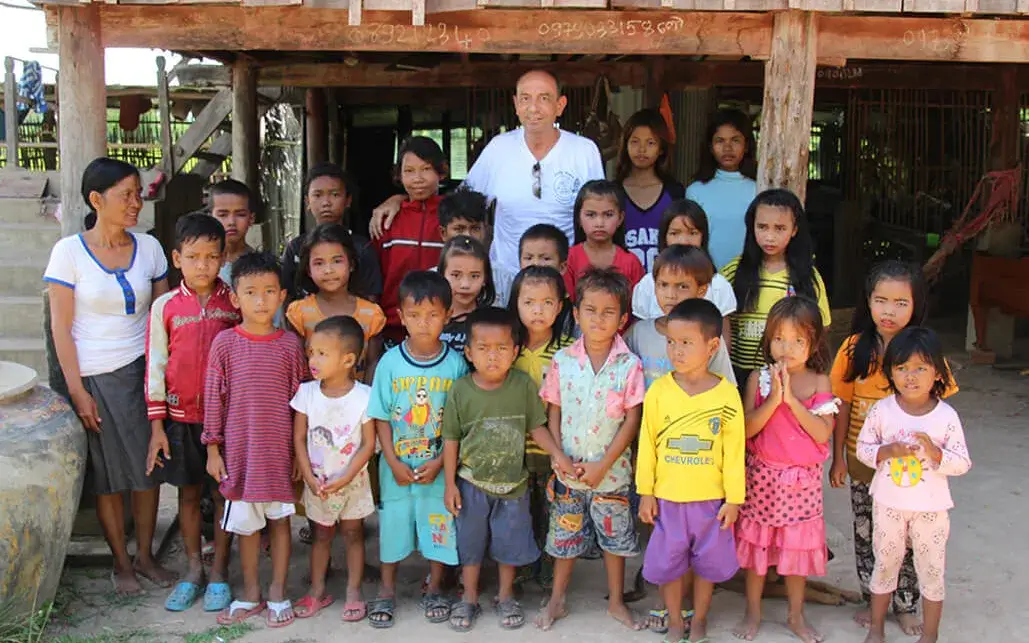The construction of the 'Kyel Dagon' school in the village of 'Tzhat Ya Lar' in the Ayayarwaddy Delta in southern Burma is the only opportunity for children in this area to finish high school
This project is one of the many executed by the NGO Colabora Burmania in this country. "Since our creation in 2009, we have carried out a large number of projects related, for the most part, to education, health and the fight against child labor exploitation," says Javier García, co-founder of the NGO.
This organization also carries out actions aimed at boosting local economies among the displaced Burmese population in Thailand, serving the most vulnerable segment of the population, women and children, mostly illegal immigrants and refugees, covering, among others, the basic needs of education through the construction and maintenance of schools and orphanages.
The area suffered the scourge of cyclone Nargis in 2008 (the Burmese government did not warn the population of the arrival of the cyclone) which generated total devastation in the area, more than 50.000 dead and 75.000 missing. According to García, the news hardly had any echo in the international press due to the isolation of the country.
In addition, NGOs did not receive authorization to travel to the area and humanitarian aid sent by the various cooperation agencies and foreign governments ended up being sold in the markets of the different cities of the country without ever reaching the victims.
Seven years after the passage of the cyclone, any infrastructure had been replaced and the most affected villages remained in the same situation with the only improvements they had made. García points out that the Kyel Dagón school is the only opportunity for children to finish high school, since the village has only one public school.
In this school the last two baccalaureate courses are not taken, so many children from the villages in the area were forced to leave school two years before finishing it. "The project had a brutal impact among the population, far exceeding our expectations and covering many more needs than planned when we formulated the project", adds the responsible for the organization.







Add new comment